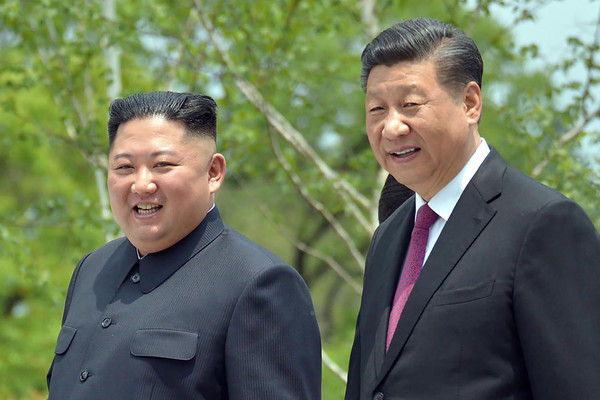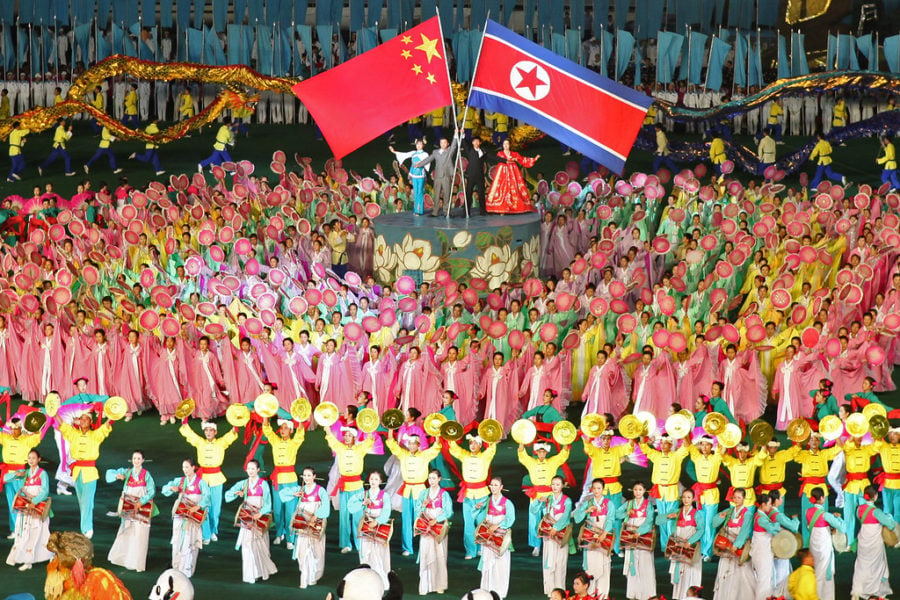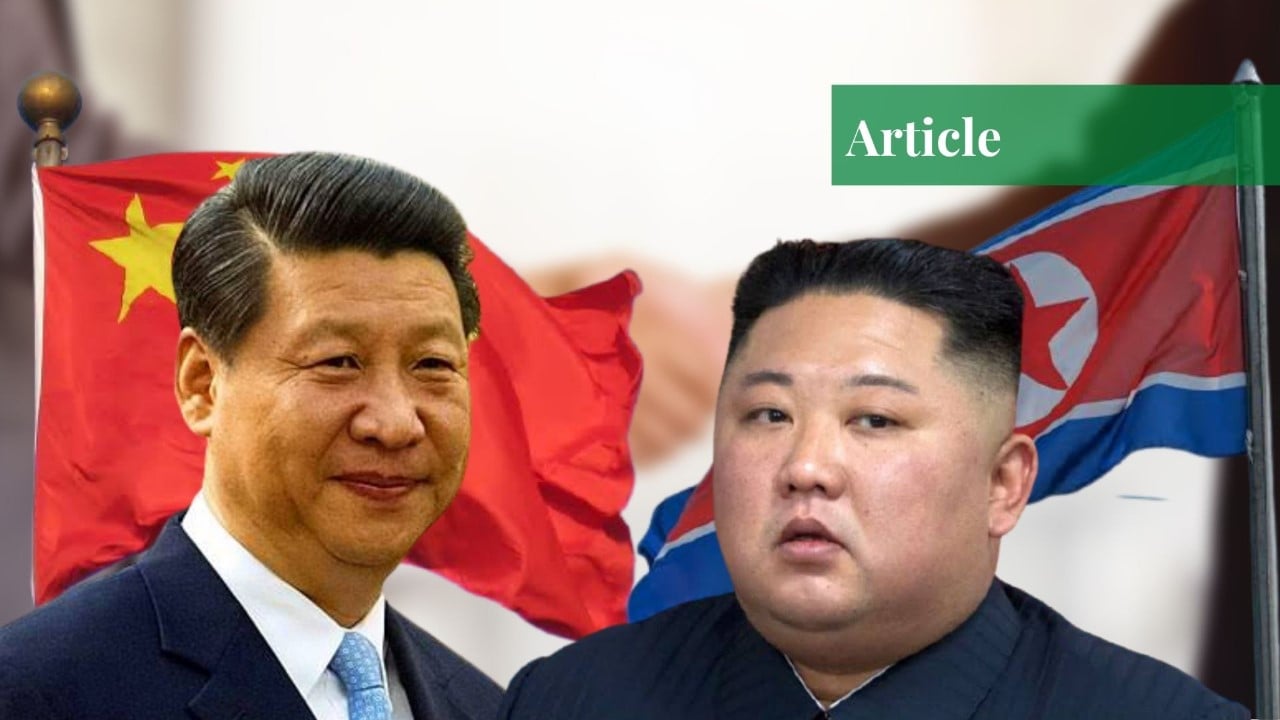A Historical Mirror of the ‘Lips and Teeth’ Alliance
The relationship between China and North Korea is quite unique. It is already well-known that China assisted North Korea during the Korean War and their interaction has been unpredictable ever since. Sino-North Korean relations can be traced back to the Korean War in 1950. Chinese troops came to the Korean peninsula aiding North Korea against South Korea and the US.
The leaders of Pyongyang growled about Chinese intervention in the war and in internal Korean affairs. They perceived this as a threat to their sovereignty and solidarity, instigating Kim II Sung’s paranoia towards Beijing. Tensions escalated quickly after an endeavor framed by China to reiterate its cultural revolution.

China had to pay the price for vigorous action against Pyongyang and tensions were raised to such a level that both countries confronted each other conventionally on the ground. However, the situation calmed down with the apology of Zhou Enlai on behalf of China. The strains in the alliance, however, have continued to exist since then.
The relations between the two neighboring countries strained when North Korea continued to conduct missiles and nuclear testing despite the strong opposition expressed by China and a few other countries including Japan and the United States demonstrated by the Six-Party Talks launched in 2003.
However, once North Korea successfully completed the state nuclear force, Kim Jong Un, the Supreme Leader of North Korea, declared that his next goal was economic development and so the main reason why North Korea took the first step in restoring cordial relations with China was to improve its economy. Another factor that resulted in the re-establishment of friendly relations between North Korea with China was their participation in the 2018 Pyeongchang Olympics and their engagement with South Korea and the US.
Mutual Benefit
Even so, it is not to say that the attempts at diplomatic relations were one-sided. China’s primary interest in regard to North Korea revolves around stability in the Korean Peninsula. Stability will allow China to preserve its national security and attain greater influence in the Korean Peninsula. The current diplomatic relations are the result of past actions like the Sino-North Korean Mutual Aid and Cooperation Friendship Treaty signed in 1961 and renewed in 1981 then again in 2001.

The friendship pact basically emphasizes the immediate involvement and protection provided by Beijing in the scenario that Pyongyang is attacked. In recent times, it was expected that the treaty would have been renewed once again this year. A major factor that motivates North Korea to maintain cooperation with China is because it has benefited much from this contract. A few accomplishments to name include the economic and military support provided by China.
Just this year alone, it has been reported that China imported $14.3 million worth of goods from North Korea in September 2021. According to some sources, another reason for the cordial relations between the two states is their mutual goal of suppressing US influence and power over the world and especially in East Asia. China and North Korea both wish to weaken relations between South Korea and the US for their own national interests.
Deepening Ties?
Therefore, China’s growing rivalry with America has been the driving factor for enhancing relations with North Korea and other states including Russia to counter the AUKUS pact launched against China. Moving forward to 2022, it is expected that two major events will strengthen China-North Korea ties. First, the possibility of the election of the People Power Party’s candidate, Yoon Suk-yeol, who alongside many other propositions doesn’t wish for the war between North and South Korea to end as well as his strong support for cordial US relations, all policies which will hinder North Korea and China’s objectives.
The second event is the Japan-South Korea alliance to protect the Taiwan Strait from China’s invasion and the possibility of a military conflict. The Taiwan Strait plays a major role in the increasing influence of China over the Korean Peninsula. As an ally of China and considering its close geographical distance from Japan and South Korea, North Korea’s involvement and the threat of being attacked is inevitable. Hence, North Korea and China will have to support each other in the case a war breaks out.
The cordial relationship between China and North Korea has been referred to as an alliance of lips and teeth in the yore. After more than fifty years, the friendship shared between both states has pierced into a new stage. Despite the ideological border shared by the two neighboring countries, the so-called alliance closer than lips and teeth is complex and misunderstood.
Chinese foreign policy towards its trading partner Democratic People’s Republic of Korea (DPRK), can be viewed as inconsistently reactive and proactive. The political framework in East Asia was deeply rooted and influenced by the Chinese-centric tributary system for the past 2,000 years. This foreign policy approach was refuted by the North Korean leader Kim II Sung. The traditional episodes of Sino-DPRK relations are quintessential in expounding contemporary geostrategic framework in the tact.
Beijing’s Economic Ties with Pyongyang
The strategic trade partnership between North Korea and China is quite prominent in East Asia. “Bilateral trade increased tenfold between 2000 and 2015, peaking in 2014 at $6.86 billion, according to figures from the Seoul-based Korea Trade-Investment Promotion Agency”. North Korea’s craving for nuclear missiles resulted in harsher sanctions for the state and the enormous economic dependency on China coerced the decline in DPRK’s economic growth.
Both states have been eager to boost their economies in a trade partnership despite all odds. The Rason Special Economic Zone and the Sinuiju special administrative zone built in the 1990s and 2002 respectively underpinned the bilateral economic trade.
Strategic Interests of Chinese Foreign Policy
The predominant strategic interests of Chinese foreign policy towards its neighboring states include the following: no instability, no collapse, no nuclear weapons, no refugees, and no conflict escalation. Regime stability in North Korea is paramount for the Chinese buffer zone that prevents South Korea from entering the North. Preventing North Korea from going nuclear has always been in Chinese strategic interests. To avoid further hostilities, stability in North Korea is its top priority.
During the 1980s, the Sino-DPRK alliance evolved into a new phase, in which North Koreans deserted the economic model initiated by the Chinese. The policy of self-reliance paved the way forward for Pgonyang’s survival in the geopolitical climate in East Asia.
Nuclear Arsenals and Chinese Reaction
The pivotal interest of China in East Asia is to restore stability in the Korean Peninsula. The military tensions between North Korea and the US escalated in 1994 and the efforts put in by Beijing to negotiate the clash are formidable. In 2006, Pyongyang tested its first nuclear missile, facing a backlash from the US and the rest of the world. China subsidized the harsh sanctions imposed under United Nations Security Council (UNSC) resolution 1718.
Beijing showed the same reaction to North Korea’s second nuclear test in 2009, but for the third time, it was distinctive from the first two nuclear tests. A resolution was adopted jointly between US and China “requesting the US Treasury Department, the Bank of China, China Construction Bank, and other state-owned banks reportedly closed the accounts of the Foreign Trade Bank of North Korea and suspended its financial transactions related to nuclear and missile development”.
The dubious Chinese policies towards North Korea are clear deceitfulness. The changing nature of its strategic interests is broadening globally. The traditional coalition has evolved into another stage. Pyongyang’s yearning for nuclear arsenals and Beijing’s globally expanded objectives have forged a complex and misunderstood alliance.
If you want to submit your articles, research papers, and book reviews, please check the Submissions page.
The views and opinions expressed in this article/paper are the author’s own and do not necessarily reflect the editorial position of Paradigm Shift.



















